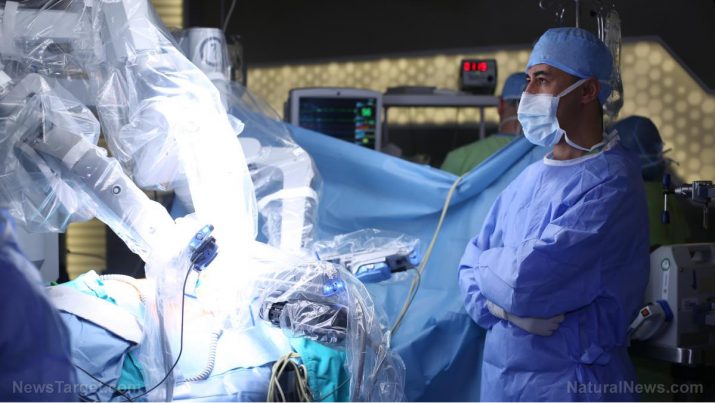
Doctors about to be replaced by hospital AI systems offering better diagnosis and less arrogance
Tuesday, September 12, 2017 by Jhoanna Robinson
http://www.futuresciencenews.com/2017-09-12-doctors-about-to-be-replaced-by-hospital-ai-systems-offering-better-diagnosis-and-less-arrogance.html

Framingham, Massachusetts-based market intelligence provider IDC Health Insights, in its recently published report on artificial intelligence and cognitive computing adoption in the Asia/Pacific titled IDC Peerscape: Cognitive/AI Practices for Healthcare in Asia/Pacific (Excluding Japan), stated the best possible healthcare solutions that hospitals and health insurance companies all around the Asia-Pacific countries should adopt.
“Hospitals will not just use AI/Cognitive for automation or accuracy anymore. Implementation will aim to augment the low availability of healthcare specialists in the region. Emerging solutions are already helping hospitals improve on medical image diagnoses using deep learning and allowing for large scale diagnostic efforts with minimal human inputs,” said Health Insights Asia/Pacific research manager Ashwin Moduga.
“AI/Cognitive solutions in the next 10 years will look to bolster decision-making and empower clinicians with tools that validate clinical decision confidence – helping improve disease progression. In the next two to three years, hospitals will have passed the stage of experimenting with simple automation and begin to invest on deep learning algorithms that make sense and generate actionable insight out of the geometrically growing, unstructured data sets, from personal and hospital health information management systems,” Moduga added.
The report noted that hospitals in the Asia-Pacific region are gaining some achievements with the private health sector focused on improving specific clinical decision support systems for diseases in their Oncology and Neurology departments, while smaller public hospital systems look for ways on how to upgrade automation of data entry and patient engagement.
“These in-house efforts have, for many hospitals, resulted in improved understanding of key process stakeholders, project scopes, and importantly, the ability to showcase return on investment (ROI) for future, larger investments,” said AI/Cognitive senior research manager Jessie Cai.
Implementation of AI in Singapore healthcare
AI can help benefit the healthcare system by providing highly accurate and early diagnosis, thereby resulting in more timely treatments and better patient outcomes. AI can also aid in predicting complications and hospital re-admissions, decrease waiting time, and find out methods to improve patient satisfaction.
The benefits of investing on AI machinery can be exemplified in Singapore. A group of researchers from the Saw Swee Hock School of Public Health and the National Environment Agency’s Environmental Health Institute created an AI agent to predict dengue incidence up to four months ahead by learning the seasonal patterns of dengue cases over the last 10 years.
Specifically, the AI agent has the potential to localize outbreaks in distinct areas of Singapore by checking mosquito breeding data and proactively instituting vector control and spot-checking activities.
Schools are already getting on board the AI bandwagon. Last November 2016 to May 2017, a team from the National University Health System, the National University of Singapore, and Integrated Health Information Systems entered the Digital Mammography Dream Challenge, which sought to boost the predictive accuracy of digital mammography for the early detection of breast cancer using a GoogleNet-based AI and a patient mammogram.
The Singapore AI’s started with 500 images, with a breasdt cancer detection accuracy of 59 percent. The AI was then instructed to calibrate its predictions, which stepped up its accuracy rates to 71 percent, and ultimately to over 80 percent with more images added to its database.
Truly, AI agents are seen as doctors’ “apprentices”; physicians should seriously learn how to use these tools to enhance the treatment of their patients. (Related: “Machine consciousness” debunked in new mini-documentary by the Health Ranger.)
Read up on more stories such as this one at Healing.news.
Sources include:
Tagged Under: Tags: artificial intelligence, doctors, healthcare, Hospitals, patient treatment, physicians, robots





